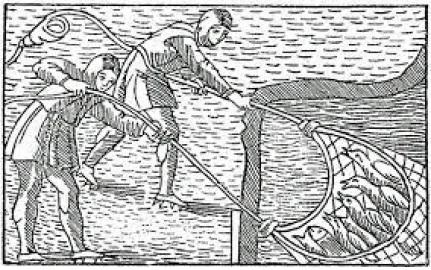nakam
Incredulity, Incuriosity, and the Academy
“You Think You’re Smarter Than Aristotle?”
I remember when I was in college taking an intro to philosophy course, the professor told us that Aristotle said that swallows hibernate at the bottom of lakes in the mud and it was just taken as canonical knowledge for like 2000 years. I laughed thinking it was silly as hell, and while I forget the exact words of the exchange, another student, a guy in an expensive-ass North Face jacket (oddly, I remember that jacket but not the guy’s face) got upset and said something to the effect of “How would he have known? You think you’re smarter than Aristotle?!” I couldn’t help myself and said, “Yeah, now that I know he was a dipshit!” I explained that he could have tested this hypothesis sitting (or paying somebody to sit) at the edge of a lake for a season and counting the flocks that go underwater and fail to come back up. I said I’d be more understanding if he had said some real out-there shit that couldn’t be tested, like they went to the moon. Notice that the option of Aristotle saying, “Gee, I don’t know where swallows go in the winter! What an interesting conundrum!” never occurred to the gentleman in the expensive jacket. Or to Aristotle, apparently.
After some animated class discussion, the professor said he was making the Aristotle bit up (Apparently Aristotle said swallows hibernate in the hollows of trees and in the ground, which is true for some birds, but Aristotle was fond of extrapolating far beyond the limits of his knowledge. The underwater “mud hibernation” thing had come centuries later from somebody else, but Ari.) because he assumed that nobody would call horseshit on a known and well-respected Great Man whose name is considered synonymous with “knowledge”. I don’t remember the full context, again it was a long time ago, but he was using that as a way of demonstrating how you should:
-
never trust uncritically the word of the Great Men of History,
-
never trust uncritically the word of teachers and professors, and
-
always remember we all have our blind spots, our agendas, and our ignorance that we don’t even know we’re ignorant about.
It’s all the same appeal to authority anyway. The point of studying philosophy is to empower you to think for yourself, not to regurgitate the words of the Great Men who came before us as incantations to the saints. I think about that often, especially when I hear or see people thoughtlessly defending to the hilt the honor of Great Man Big Brain Genius Boys like Foucault or Marx.
Do I think I’m smarter than Foucault? Well, yeah I do, but not because I think I’m special. I think I’m smarter than Foucault because I think he was, like Aristotle, unusually full of shit, and because he was a French pederast “intellectual”, nobody ever told the Emperor he was strutting down the street with his balls out. It’s not because I’m a Super Special Big Brain Genius Girl. I can’t help but see the guy in that 300 dollar jacket confidently suggesting that I was unintelligent because I was incredulous at an incredible claim, only to be vindicated by the professor saying “nah actually I made it up because I knew y’all would lap it up” every time I see somebody defend the worst fucking people in the history of academia.

It was common (though, in fairness to my enemies, occasionally debated) “knowledge” among the aristocracy and intelligentsia of Europe that birds hibernated at the bottom of lakes for a long time in the common era, but we all know why the peasantry didn’t bother dredging lake bottoms for game. Rich assholes pontificating is no substitute for a grounding in lived experience, even as they look down on you for relying on demonstrable experience rather than revealed wisdom.
Remember whose “wisdom” gets recorded, and whose gets erased, and you’ll see the flows of epistemic subjugation and their consequences.
